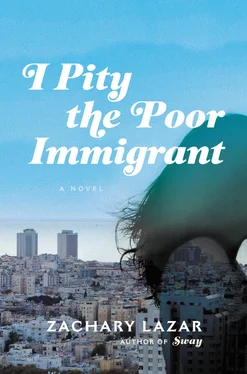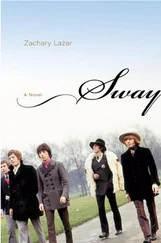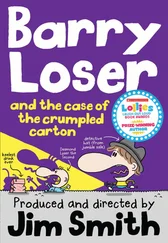I imagine it through Lansky’s eyes, Lansky who came there at the age of twelve. A fight breaks out and everybody on the street scatters. Heads open up with blood. He sees them looking at each other and breathing, even as they swing with the iron bars. Three or four boys lie on the wet ground holding their faces, curled up in balls. When the gunshots start, the casings hit the street with a ring like coins. He can see them shining there.
What is it that makes him stay and watch? What is it that makes him compelled and not repulsed?
INTIFADA
It’s 2001. They blow up the discotheque by the Dolphinarium in Tel Aviv. They blow up a seder in a dining room at the Park Hotel in Netanya. A year later, twenty-one teenagers die outside the discotheque, most of them the children of Soviet immigrants. In Netanya, the dead are mainly elderly people without family, some of them Holocaust survivors. A place where children can watch dolphins or go to dance parties. A hotel that offers a seder for those alone on Passover. After a while, I can’t watch the TV coverage anymore — not the suicide bombings, not the bulldozers razing the refugee camps. In Tel Aviv, they are throwing stones. In Jenin, they are throwing stones. We’ve been through this all before, many times. My son won’t return my phone calls or my e-mails. It’s not a declaration, it’s simply an absence, a failure to respond. I wonder what, if anything, he thinks about the war going on all around us. It’s the Second Intifada and my son and I are both veering toward a state of homelessness.
PERMANENT WAR
The gangsters built their houses on pretense, hypocrisy, deception — that was the country in which they staked their claim. They owed their lavish homes and wealth to a law conceived by America’s heartland Protestants, people who feared immigrants — who equated immigrants and the urban places in which they lived with sin. But of course it was Prohibition itself that urged these fears into dismal reality. The immigrants really did form criminal conspiracies, they really did corrupt judges and politicians, they really did murder people, they really did take over whole cities and become wealthy beyond their dreams.
The price of course was permanent war. On October 17, 1929, Charlie Luciano was tortured and almost killed while Meyer Lansky and his pregnant wife, Anne, were at their apartment in Brooklyn. It turned out to be the start of what would be called the Castellammarese War. Lansky’s first son, Bernard, or Buddy, was born during the Castellammarese War. No one knows for certain how many people died during its two-year course.
Lansky’s younger son, Paul, who would go on to graduate from West Point, went first to the prestigious Horace Mann School in the Bronx, where perhaps he first heard the word “phony.” 2The Lanskys’ apartment on Central Park West was “phony.” Paul’s mother and her friends, the Jewish wives with their mink coats and jewels, were “phony.” No doubt the Horace Mann School itself was full of “phonies.” The older son, Buddy, stayed home all day — he had left school at fifteen because he’d been born with a kind of disability that no one knew what to call other than “cerebral palsy.” He had trouble walking. He limped along with the contorted shuffle of an elderly woman rising from a bed. For Anne Lansky, the mother, the apartments on Central Park West — first in the Majestic, then in the Beresford — became a kind of hiding place or ward. She withdrew into eccentricity, then madness, ultimately, Robert Lacey reports in Little Man: Meyer Lansky and the Gangster Life, attacking her husband with a kitchen knife. They divorced in 1947, the year Bugsy Siegel was murdered in Los Angeles. Before that, Anne had escaped from a psychiatric clinic—“all the way from Riverdale in a nightgown,” Lacey writes — only to collapse in front of Buddy, who, Lacey reports, would always remember “the knock on the door from the men in white coats, the protesting cries of his mother, the strange heavy jacket with the strings on the sleeves.”
“Paul says everything about this place is phony,” Buddy blurts and sheepishly smiles, and his father, Meyer Lansky, finds himself confronting some warped and unmanned version of himself from a long time ago. He can see his own eyes in Buddy’s eyes, his own childhood self in Buddy’s tentative fatuous grin. It’s an immigrant’s grin, the open-faced smile of the newly arrived.
CONSPIRATORS
I don’t think my son Eliav even wants the power he has over me — he just has it. My ex-wife sees him from time to time, but when I ask her about his silence, she won’t offer any clues. I gather that if she tells me anything it will only jeopardize her own rare contact with him. Although she never says so, I also know that in some instinctive way she blames me for his deterioration. I of course blame myself. There’s no other way to feel about it, no matter what I try to tell myself.
DISCLOSURE
Towering over both of them was Salvatore Lucania who at age twenty-one had a bad reputation. Even as Lansky watched, Lucania kicked the woman in the side.
“You bitch,” he shouted.
And now Lansky realized the woman was laughing through her tears.
In the fashion of Hank Messick, I’m going to make up my own version now, improvising the scenes. Call it poetic license. Call it a countermythology. Having read the books in the bibliography and looked at length at the photographs, I’m going to do what most people do, which is to imagine what isn’t there.
SEPARATION
In the bedroom, Lansky opened the suitcase on top of the mound of clothes and put his laundry in the hamper, the suits in a special cloth bag. Sweaters and dresses and shoes and handbags — in his absence, Anne had left them in a pile that sloped from the bed onto the floor, probably living for a month out of that mess. He went into the bathroom, where the sink was so thickly cluttered with cosmetics bottles and shampoos and tonics and medications that he couldn’t wash his hands. He took a tablet for his ulcers, swallowing it dry.
She was watching him from the doorway, her eyes swollen.
“Buddy should be home soon,” she said. “He gets back four, four-thirty.”
“We’re going to the ballgame tomorrow. I’ll see him then.”
“You told me that. I forgot. You should take his friend Vince.”
“Vince.”
“Vince drives him to the clinic. He drives him everywhere in that little car of his. You should treat him to the game.”
The gauze curtains were drawn against the sunlight. She did a certain kind of crossword puzzle that came in big cheap books made of gray paper with ink that smudged, and one of them was flopped open on the floor with a pile of quilts and blankets next to it. There were more blankets on the sofa, a pair of eyeglasses and a bottle of Bayer aspirin and a clutter of cups and saucers and the torn sleeves of soda crackers.
“I just came to get some things,” he said.
“I’ve been feeling under the weather lately. The pollen. It’s spring.”
He stood there rigid in the effort of not saying anything. “I’ve got to go,” he said. “I’ve got someone waiting.”
He replenished the suitcase with clean shirts in cardboards, half a dozen suits, socks, underwear, ties. Then he went downstairs and drove to where he was staying that week, his sister’s apartment on Ocean Parkway in Brooklyn.
DIVORCE
My wife and I divorced when our son Eliav was ten. Eighteen years later, in 2001, she gives me a birthday present, a book of the paintings of the Israeli artist Ivan Schwebel, whose work conflates time. There are pictures of King David dancing in triumph, as in the Bible, but in the background not the Judean hills but cattle cars bound for Auschwitz. There are pictures of David spying Bathsheba across a highway or from the roof of a warehouse, the setting not ancient Jerusalem but the modern city’s Ben Yehuda Street or Jaffa Road or sometimes even the Bronx, barbed wire fencing off the rows of tenements. In some pictures, David looks like a grizzled man in his sixties, in others he is young, in others he is paired with a blurred figure of Jesus. In the pictures he is never at rest, never at home. At the end of the triumphant dance sequence, there are two paintings of David facing his first wife, Michal, who confronts him on a modern street at night in a scene reminiscent of a Hollywood movie, her eyes moist and accusing in the way of a betrayed woman. In the next panel, they stand like two drunks in a moment of hopeless recognition. A mugging goes on behind them in the sudden illumination of a car’s headlights. He has indeed betrayed her and he will betray her further, and in the picture both he and his first wife seem to already know this.
Читать дальше












